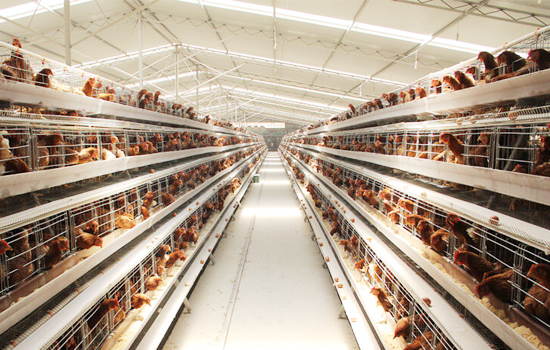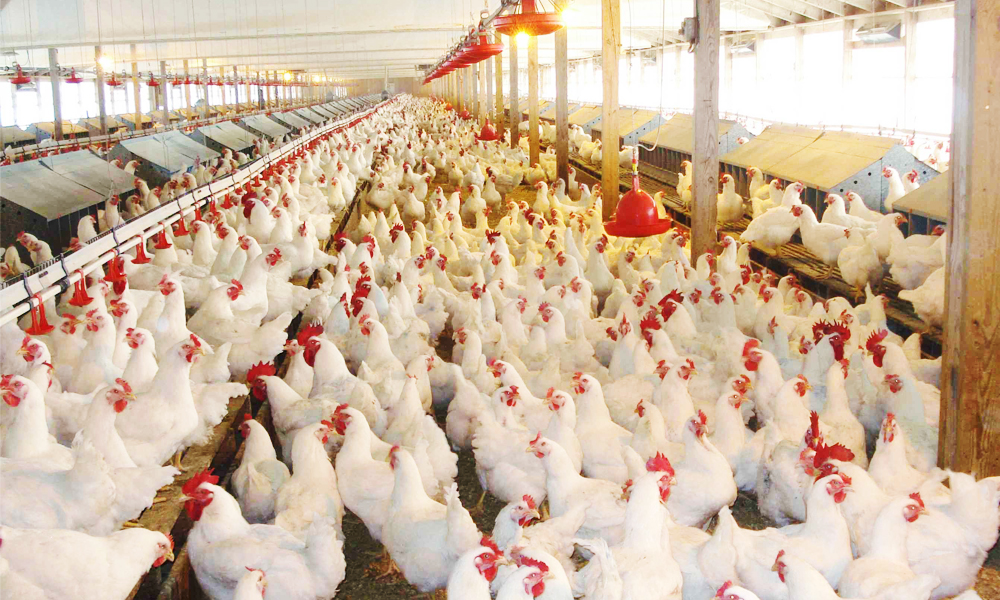High-density chicken raising measures for laying hens
- Published in Method of breeding chicken
High-density farming is the method that most domestic farmers now adopt. High-density farming is also one of the important measures to improve production and reduce costs. However, if high-density breeding is carried out, if the farmer manages the environment of the chicken house, it will lead to the deterioration of the air in the house and the bad habits of the chickens. Therefore, chicken cage manufacturers recommend that farmers should take the following measures in order to improve the stocking density while still making the environmental conditions more suitable:
1. Density should be appropriate: Feeding density refers to the area of the cage bottom of each square chicken. On a certain chicken house ground, the higher the stocking density, the more chickens are raised. However, if the density is too large, the air in the chicken house is poor, and the activity and diet of the chicken are inconvenient. The growth rate and the egg production rate are both reduced, and the results are less favorable. Therefore, even at high density, the density should be appropriate and not too dense.

2. Place enough feeding troughs and sinks: Under high-density feeding conditions, each chicken must have the proper length of the trough and sink. And place these feeding troughs and sinks as evenly as possible in all parts of the house. In this way, although the density of the flock is high, each chicken can have a certain position and can eat and drink near the water to ensure that the water is not lacking, so that the production performance is not affected.
3. Strengthen ventilation: Under high-density feeding conditions, there are many chickens and therefore have a large amount of breathing. The relative humidity and the concentration of harmful gases in the house are also likely to rise. In the high temperature season, the temperature is also easy to rise. In order to maintain a good air condition in the house, ventilation equipment should be installed or installed, ventilation should be increased, and sufficient fresh air should be continuously exchanged.
4. Beak breaking: high density breeding of chickens can easily lead to altercation. In order to prevent the occurrence of pecking feathers, anal pecking, reduce the death of chicken, chicken picky feed to avoid waste, etc., usually in 6-10 days of age, the chicken beak up and down together to cut 1/3-1/2.
5. Reduce the light intensity: when the feeding density is high and the light is strong, it is easy to cause chicken restlessness. Even after beaking, anal pecking and other phenomena will still occur. In closed coop, the illumination of growing chickens should be 5-10 lux, and that of laying hens should be 10 lux. Ordinary chicken cage such as light is very strong, when the occurrence of anal pecking, in the guarantee of proper ventilation conditions, to cover the coop as dark as possible.

